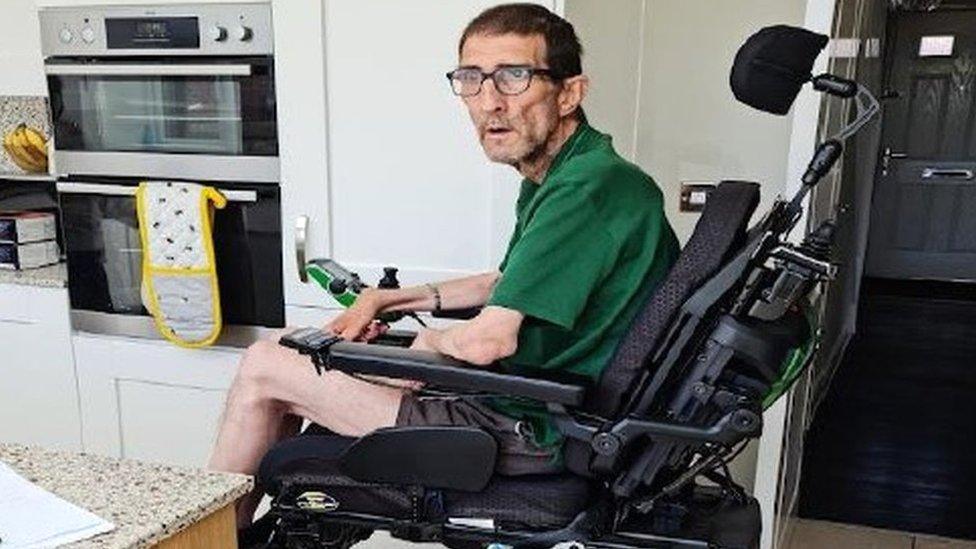Hundreds have say on Wasperton gravel quarry plans
- Published
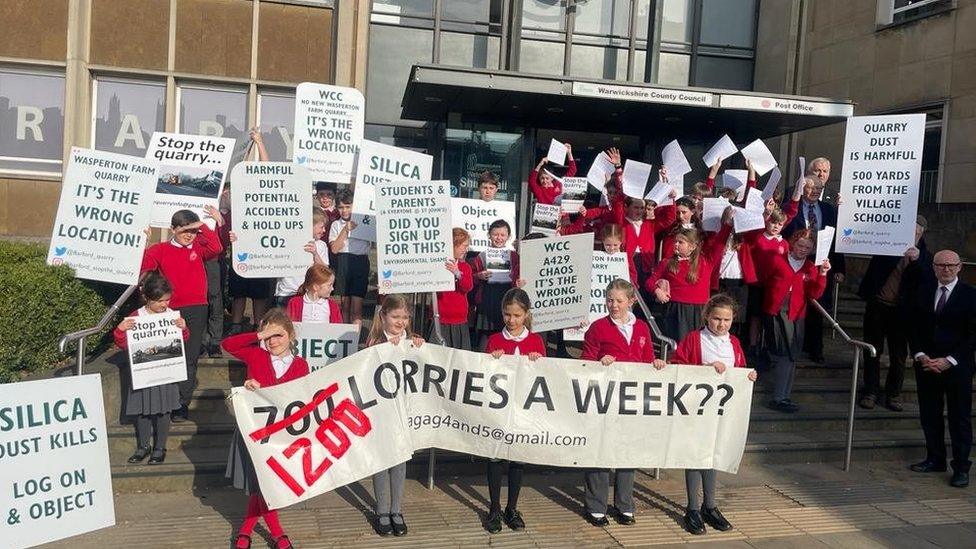
Children from Barford St Peter's Primary hand delivered letters of objection to the council
A consultation over plans for a sand and gravel quarry has been extended due to the overwhelming response.
Warwickshire County Council has received about 1,700 comments about the site at Wasperton, which lies just a few hundred yards from neighbouring villages.
Residents fear the scheme, which borders both Wasperton and Barford, would produce harmful dust particles.
But Smiths Concrete said it would have "minimal impact on air quality".
The Wasperton site is one of seven preferred locations identified by the council, external to maintain aggregate supplies.
It would produce about 1.8 million tonnes of aggregate over a period of 10 to 15 years, to serve the region's construction industry.
Local residents have been vocal in their opposition to the scheme, which could be sited about 220 yards (200 metres) from Wasperton and 700 yards (650 metres) from Barford.
Barford Sand and Gravel Committee said it believed the council and landowners should prioritise the environment.
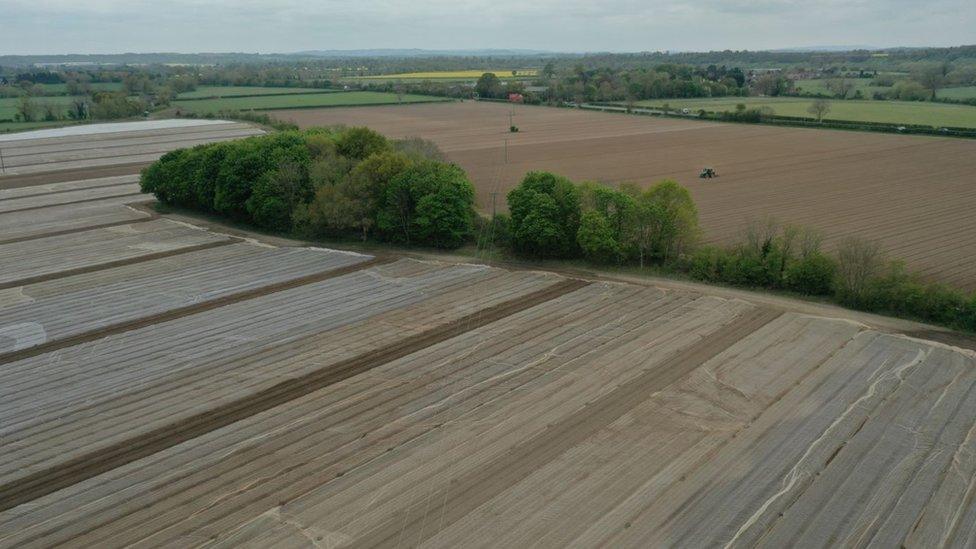
The site earmarked for the quarry lies on arable land owned by St John's College, Oxford
"If this quarry is granted permission, over 60 million kg of carbon, along with the diesel fumes of the additional weekly 1,200 lorries, will be released into our already polluted atmosphere over the initial 15-year mining period," a spokesperson said.
Villagers are also worried about the harmful effects of airborne silica dust, the committee added, and called for new quarries to be a minimum of 1km from homes.
On Thursday, Year 6 pupils from Barford St Peter's Primary delivered letters of objection to council headquarters Shire Hall, accompanied by Warwick and Leamington MP Matt Western.
The children wrote about the loss of wildlife habitats, the additional traffic, and noise from the quarry distracting them in school, parents said, but were "disappointed" nobody from the council greeted them, head teacher Mary Baker said.
Mr Western pledged to continue to campaign with residents against the quarry, which he said posed a "risk" to health.
"These children would be some of those worst affected by the quarry," he said. "The letters they handed in at the council clearly showed their strength of feeling about these plans."
However, Ray Chambers, general manager at Smiths Concrete, said the firm had continually highlighted the "the near non-existent environmental risks to the community".
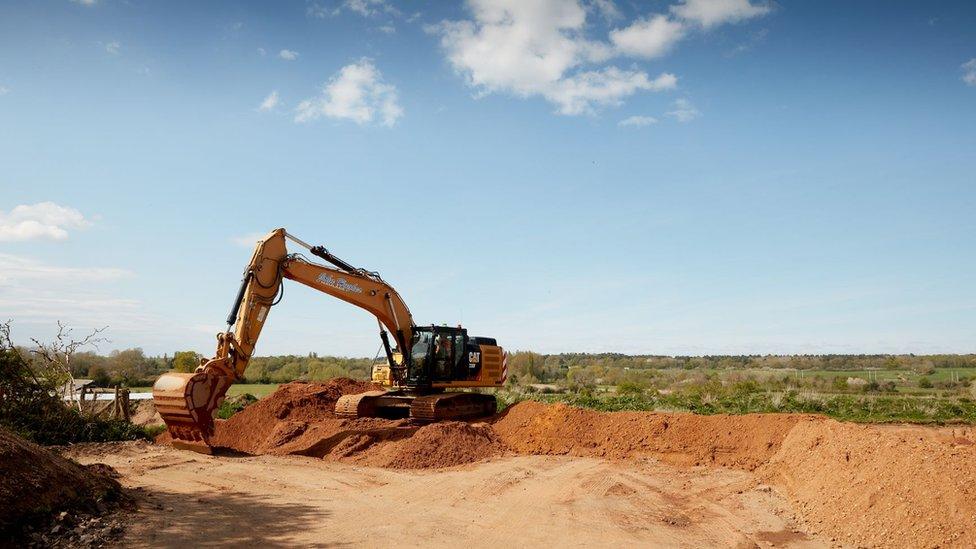
Smiths Concrete also operates a site at nearby Wolston, which it had invited residents and Mr Western to visit, it said
The potential occupational risks of quarry-related dust were "well-managed", he added.
"Plus, silicates form 95% of the minerals in the earth's crust and are found all around the home, in the garden and at the beach," he said.
That the Health and Safety Executive had found no cases of silicosis among the general public in Britain, external should provide further reassurance, Mr Chambers added.
Restoring habitats
Silicosis is a disabling lung disease that can affect workers exposed to fine dust containing quartz, found in rocks and sands.
Smiths Concrete would minimise disruption by carrying out extraction in phases on a third of the site at a time, Mr Chambers said, and protect nature by restoring habitats.
The earmarked land is owned by St John's College, Oxford, which Barford Sand and Gravel Committee accused of contradicting its own environmental policy in allowing it to be used for a quarry.
The BBC has contacted the landowners for a comment.
A spokesperson for Warwickshire County Council confirmed the consultation period had been extended by three weeks, to thoroughly examine the high volume of comments.
With further responses expected up to the 28 February deadline, the application would take "some time to analyse and process," the spokesperson added.

Follow BBC West Midlands on Facebook, external, Twitter, external and Instagram, external. Send your story ideas to: newsonline.westmidlands@bbc.co.uk, external
Related topics
- Published3 May 2018
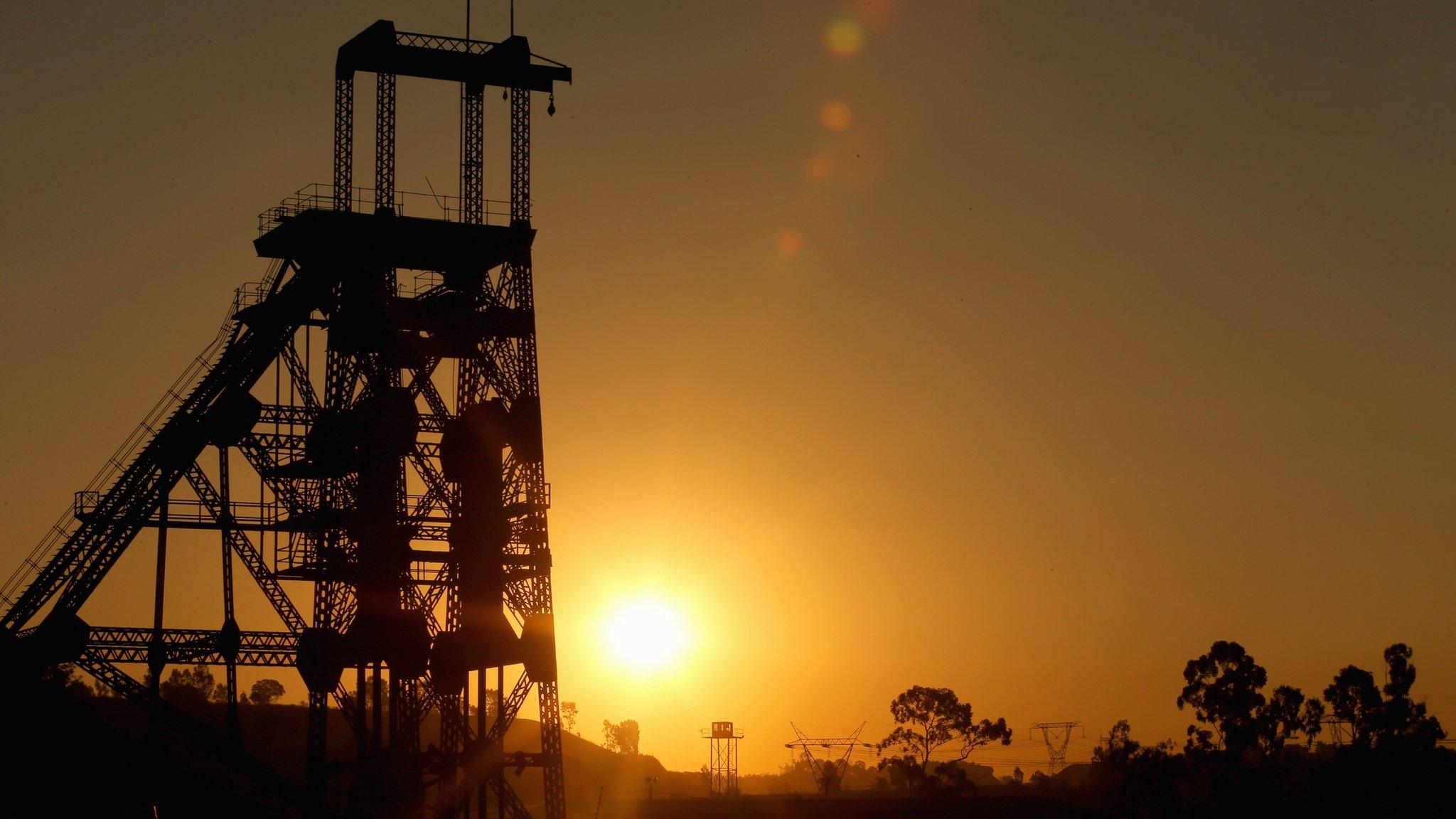
- Published13 December 2022
